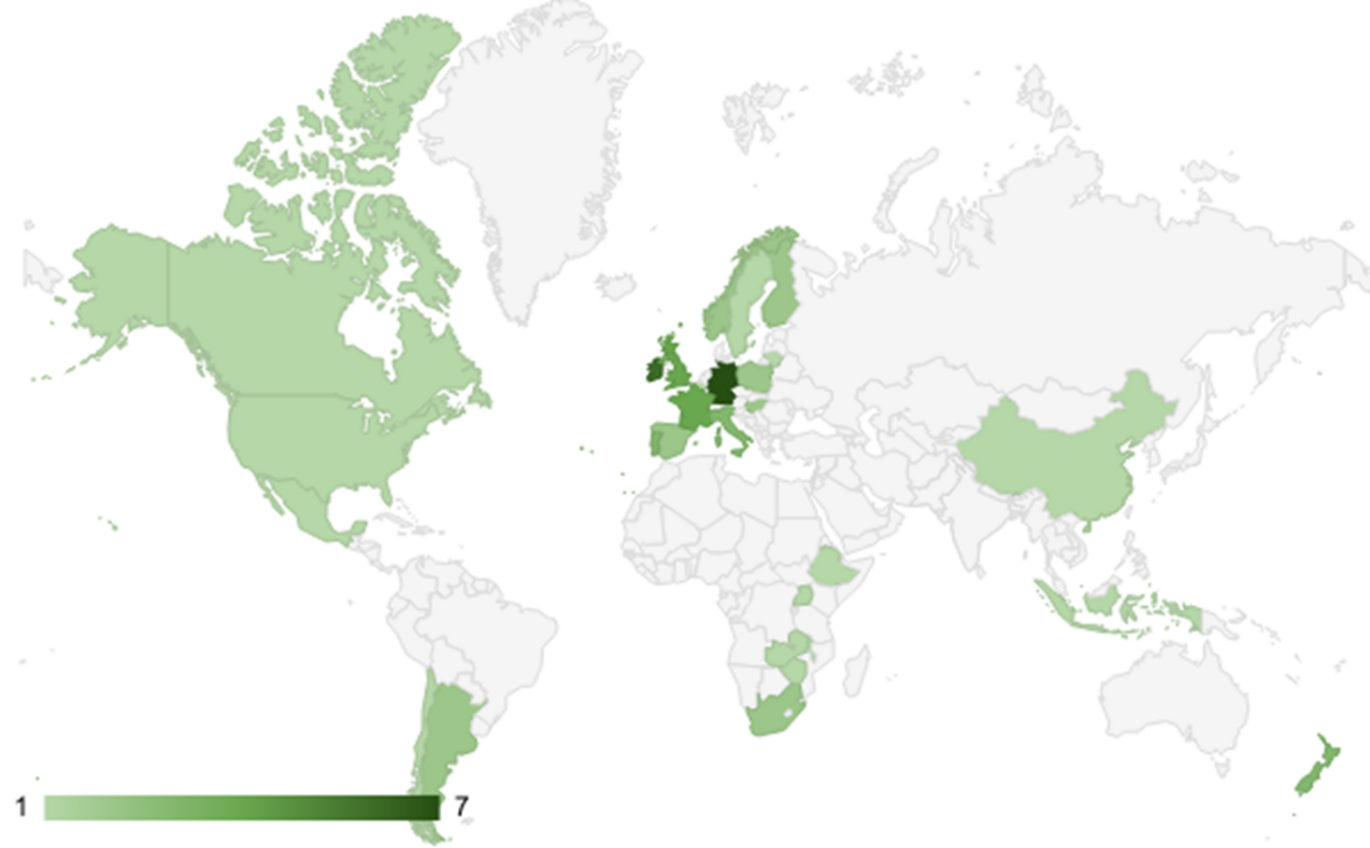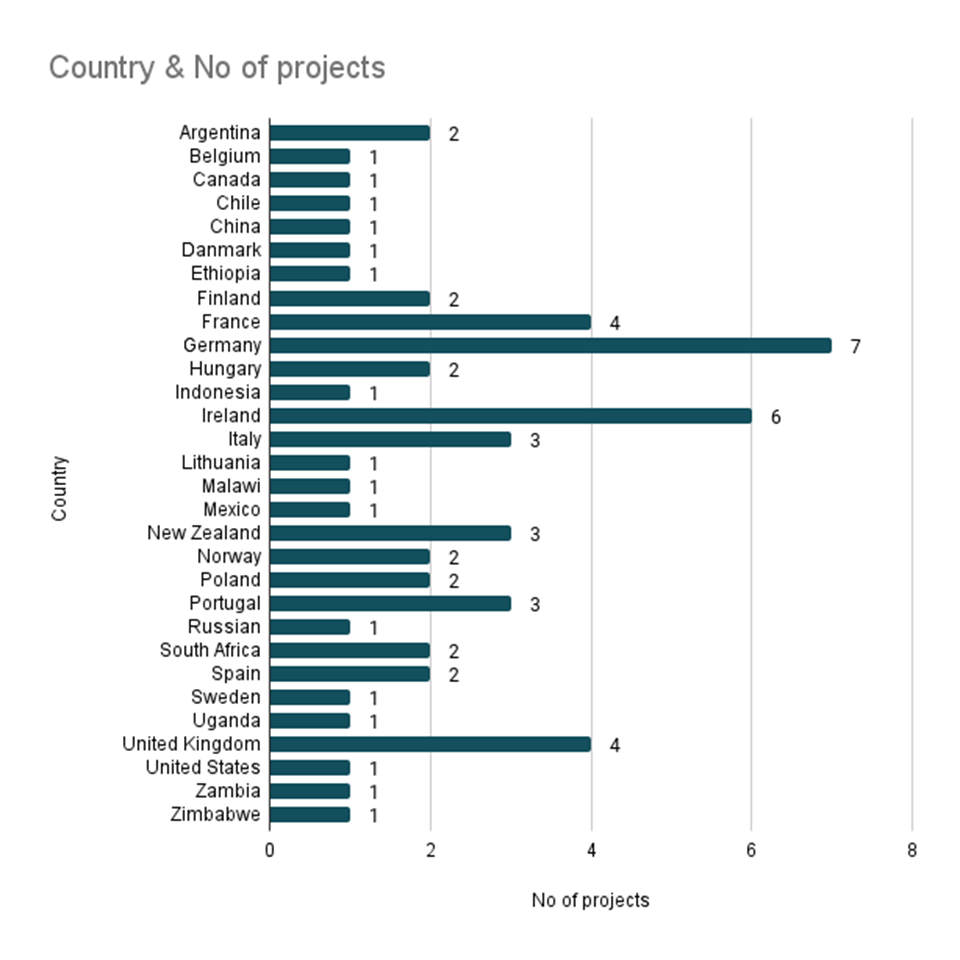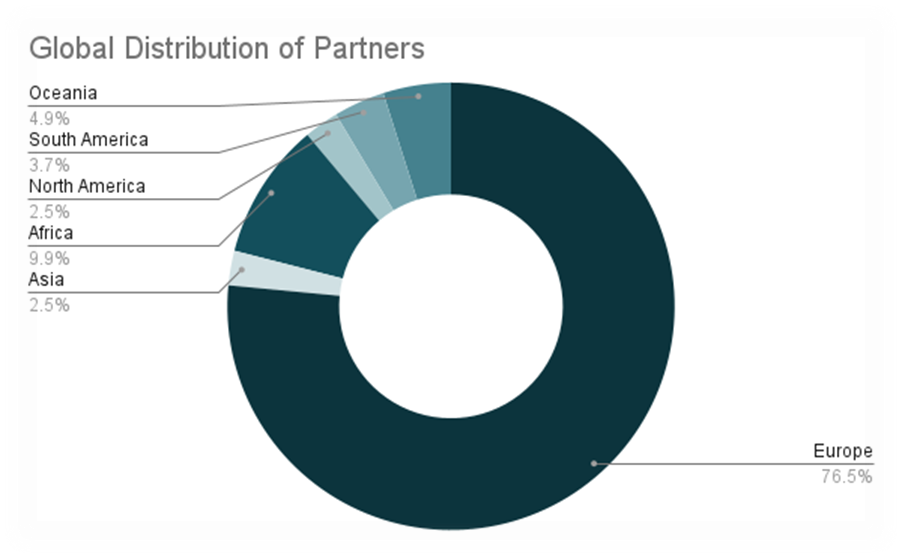New EJP SOIL projects to bridge identified research gaps
11 new research projects and expertise join the efforts of enhancing the impact of the EJP SOIL programme. The objectives are to deepen our understanding of SOC sequestration, soil biodiversity and approaches to improve sustainability, resilience, health and productivity of soils.

What are the dynamic interactions between Soil Organic Carbon stocks and Green House Gas emissions? How can soils ‘learn’ to adapt to climate changes? How can we restore soil structure by the use of coffee grains, shrimp shells and preserve soil health through wheat root traits?
11 new research projects contribute to the identified research gaps in the EJP SOIL research Roadmap. With the above questions and many more, the projects will be covering the following three topics:
· Understanding SOC sequestration (stabilization, storage and persistence)
· Soil biodiversity: status, and role in ecosystem services provided by soils
· Site-specific or landscape-scale approaches to improve sustainability, resilience, health, and productivity of soils
What are the dynamic interactions between SOC stocks and GHG emissions?
The upcoming research will contribute to understanding of carbon sequestration in agricultural soils by focusing on persistence and storage of SOC as well as the dynamic interactions between SOC stocks and GHG emissions. Furthermore, agricultural management will be investigated with research activities on the impact of long-term phosphorous additions on carbon sequestration and enriching soils with organic matter.
In addition, new research will look into how the physical and biogeochemical processes controlling emissions are affected by soil structure, and identify key processes in the management-soil interaction, which determine GHG production.
Coffee sub-products, and shrimp shells - solution for soil stabilization?
One of the main threats to agricultural soils is water and wind erosion. New technologies, practices and management approaches are needed to increase farming systems’ sustainability and resilience to climate change. A project will focus on innovative polymer-based approaches that may be a solution for soil stabilization, improving physical and chemical properties, and even simultaneously enhancing SOC sequestration. The technology is based on the application of rough organic excipients such as mulch, coco coir, coffee sub-products, and shrimp shells.
Can soil organisms learn to adapt to changing conditions due to climate change?
Saltwater contamination is a major contributor to agricultural soil degradation in arid areas where it decreases crop yields. If soils can ‘learn’ to tolerate saline irrigation through more gradual biological adaptation, this means growers may condition soils to remain fertile despite the use of saline irrigation. Farmers will be able to manage the increasingly pressing issue of saltwater contamination. Little is known about how soil organisms respond to increased salinity. Research show that soil organisms from saline soils are more tolerant to salt than those from non-saline soils. Based on this, a project will test a range of saline concentrations to evaluate how this works, measure and predict impacts on various scales.
Complementary expertise and resources will identify how key wheat root traits in the root/soil interface can improve soil health. Furthermore, plant-associated microorganisms and their functions stimulate plant growth and increase their resistance to changing soil conditions. Research will focus on the quantity and quality of the microbiota that these functions depend on, which among other things is determined by the composition of the soil.
Networking fungi contributing to resilience of agri-ecosystems
Numerous ecosystem functions and services are regulated by root-fungal (mycorrhizal) symbioses. The mycorrhizal fungi is created by plants coevolving with soil fungi. An important feature of mycorrhizal symbioses in agriculture is their ability to ‘network’. Research will advance our understanding of this networking ability’s contribution to resilience of agri-ecosystems under ‘real-world’ field conditions and particularly in response to typical interventions used by farmers and land managers.
External calls in EJP SOIL
Within the EJP SOIL programme external calls are conducted to open research activities also to researchers outside of the EJP SOIL consortium under the umbrella of EJP SOIL’s objectives and ambitions. For this purpose research funding organisations in and outside Europe have been contacted and encouraged to participate in our calls. The call office mobilized 18 funders with a total budget of 13.5 M€ to provide funds to our 1st external call. The budget is defined as virtual common pot meaning that each Funding Party will fund only the activities of their respective project partners within one research project.
International independent referee committee
In response to the 1st external call from EJP SOIL 75 proposals have been submitted and evaluated. The evaluation process was conducted in line with H2020 rules and outlined in our call announcement. Following the individual evaluations a panel meeting was conducted in which each proposal was discussed resulting in a consolidated evaluation report and ranking list of proposals. Based on the ranking list and availability of funds the External Call Board of Funders (EXCBF, Table 1) took the final decision on selecting proposals during the respective selection meeting. In result, 11 proposals with a total requested funding of 12.4 M€ have been recommended for funding, spread over 71 research partners. In addition, 10 research partners are participating on own contribution within the respective research projects, which underpins the great interest in the announced call.

*GRA provides funds to organization in the following countries: Argentina, Bangladesh, Benin, Boliv-ia, Brazil, Cameroon, Chile, China, Colombia, Costa Rica, Cote d’Ivoire, Democratic Republic of Congo, Dominican Republic, Ecuador, Egypt, Eswatini, Ethiopia, Ghana, Honduras, Indonesia, Ma-laysia, Malawi, Mexico, Mongolia, Namibia, Nicaragua, Nigeria, Panama, Paraguay, Peru, Philip-pines, Republic of Korea, Samoa, Senegal, South Africa, Sri Lanka, Thailand, Tunisia, Turkey, Uganda, Uruguay, Viet Nam, Zambia and Zimbabwe
The selected project represent a global interest where projects will integrate external expertise in the collaboration with the EJP SOIL consortium in joint efforts to develop climate-smart sustainable agricultural soil management.
“It is a great success, that so many and important international research funders have joined the EJP SOIL scientific priorities and ambitions, and that so many teams answered to the call with excellent proposals.”, says EJP SOIL coordinator Claire Chenu, INRAE.


Project summaries – click on the project name
Projects | Coordinator |
| Soil management effects on soil organic matter properties and carbon sequestration | Wroclaw University of Environmental and Life Sciences (PL) |
| Preadapting soil biology for increased tolerance to elevated salinities due to climate change | University of Lincoln (UK) |
| Soil management effects on soil organic matter properties and carbon sequestration | École Normale Supérieure (FR) |
| True SOC sequestration: understanding trade-offs and dynamic interactions between SOC stocks and GHG emissions for climate-smart agri-soil management | University of Göttingen (DE) |
| Organic and inorganic carbon dynamics in calcareous soils | Institut de Recherche pour le Développement (FR) |
| Tuning the wheat root microbiome to improve soil health and optimize rhizosphere nitrogen cycling and availability | John Innes Centre (UK) |
| Impact of long-term phosphorus additions on Carbon sequestration and Nitrogen Cycling in Agricultural soils | Teagasc (IE) |
| The effect of conservation agriculture interventions on greenhouse gas emissions | Rothamsted Research Sustainable Soils and Grassland Systems Department (UK) |
| Development of Synbiotics for enhancing the soil microbiome | Fraunhofer IAP (DE) |
| Symbiotic Solutions for Healthy Agricultural Landscapes | The University of Manchester (UK) |
| COmposite Polymer-based Amendments for Soil Organic Carbon Sequestration | Lomonosov Moscow State University (RU) |